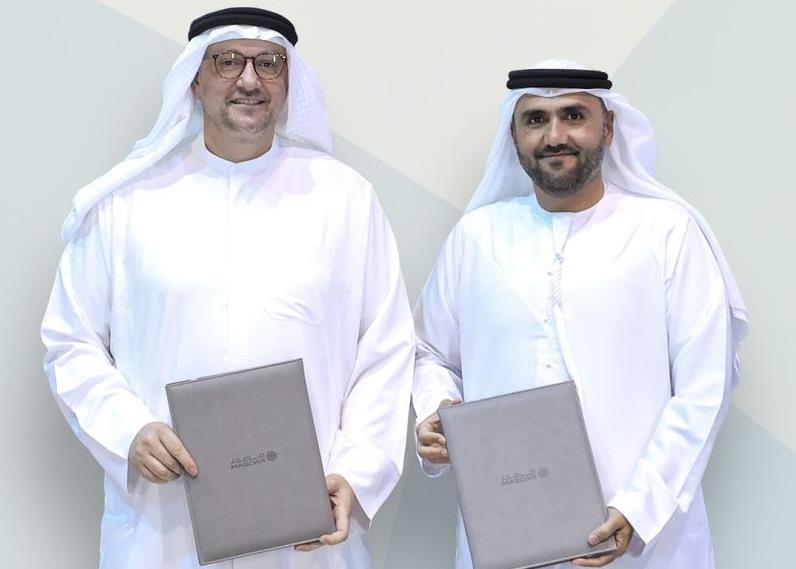
Six prominent ministers in Lebanon’s new government, formed in December 2009 are: Raya Haffar al-Hassan, Ziad Baroud, Elias Murr, Ghazi Aridi, Charbel Nahas and Gebran Bassil
Raya Haffar al-Hassan
Position: Finance Minister
Biography: Lebanon’s first prominent female cabinet minister, Raya Haffar al-Hassan, is one of the new appointees to the coalition cabinet. A close confidante of Prime Minister Saad Hariri, she previously led a UN development programme aimed at supporting decision-making at the office of the prime minister. Al-Hassan belongs to Hariri’s Future Movement and, as such, is the leading Sunni member of the cabinet. The 43-year-old mother of three has taken on one of the toughest briefs in government – managing the country’s massive public debt and ensuring that key targets adopted in 2007 under Lebanon’s Paris III debt commitments are delivered. She is expected to be a proponent of privatisation. Al-Hassan worked on the government’s economic and social reform agenda under the Paris II and Paris III International Donor Conferences, and in the 1990s advised finance ministers.
Contact: (+961) 1 642758/9
Ziad Baroud
Position: Interior & Municipalities Minister
Biography: The young lawyer and human rights activist Ziad Baroud is one of Lebanon’s most dynamic politicians. He is a Maronite Christian who has pursued a strongly non-sectarian agenda since taking office in 2008. Awarded Young Global Leader of 2007 at the World Economic Forum in Switzerland, Baroud is a prominent supporter of political reform in Lebanon. His main goal has been to oversee electoral reform in the country, and the successful June 2009 parliamentary ballot is testament to his success to date. But he wants to go further in reducing the sectarian character of life in Lebanon. In February 2009, Baroud authorised his department to grant any request from members of the public to have their religious beliefs removed from official files. Baroud has managed to give momentum to his reformist agenda, so there are likely to be further policy changes from the Interior Ministry in 2010.
Contact: (+ 961) 1 425250
Elias Murr
Position: Defence Minister and Deputy Prime Minister
Biography: A Greek Orthodox Christian, 46-year-old Elias Murr is a scion of one of Lebanon’s oldest political dynasties. His father, Michel Murr, was a former interior minister and his former father-in-law was the previous president, Emile Lahoud. Like Ziad Baroud, Murr is one of President Michel Suleiman’s five ministerial choices who belongs to neither the main March 14 nor March 8 political movements, yet many Lebanese regard him as closer to the latter. Murr, who survived an assassination attempt in 2005, will provide continuity in the new administration and enjoys close relations with Syria, an important attribute in a government that is broadly led by anti-Syrian politicians. Having previously overseen sec-urity force raids on Islamist militants, Murr will seek to maintain a strong focus on security as the government settles in to power.
Contact: (+961) 1 287700
Ghazi Aridi
Position: Public Works & Transport Minister
Biography: Ghazi Aridi is a Druze member of parliament and a prominent figure in Druze leader Walid Jumblatt’s Progressive Socialist Party (PSP), which was instrumental in forming the anti-Syrian March 14 alliance in 2005. Aridi is a key supporter of Saad Hariri and his continued control of the Public Works & Transport Ministry gives him a decisive influence on Lebanese public and economic life. The PSP’s continued hold on the ministry suggests the Druze still carry weight in Lebanese politics. However, under Saad Hariri’s premiership, there will be a stronger emphasis on achieving targets and Aridi will have to ensure that public works projects receive the strongest attention. As minister, Aridi is charged with overseeing the delivery of funds into a number of large infrastructure and reconstruction projects and must ensure transparency in the disbursement of funds to finance them.
Contact: (+961) 5 455821/2-3
Charbel Nahas
Position: Telecommunications Minister
Biography: A prominent supporter of former president and Free Patriotic Movement leader Michel Aoun, Charbel Nahas’ appointment as telecoms minister represents a coup for the Aounists, as the department is one of the ministries most prized by Lebanon’s political factions. Nahas is charged with overseeing the long-delayed privatisation of Lebanon’s telecoms system, with the sale of two mobile phone companies expected to raise $7bn for the state. However, press reports have questioned his commitment to privatisation, claiming he is reluctant to sell state-owned companies. But the performance of Lebanon’s telecoms systems lags behind others in the region and the new minister will have to meet the public’s expectation of an improved service. In December 2009, Nahas announced that the government would create facilities to provide at least 90 per cent of the country with broadband internet access.
Contact: (+961) 1 979100
Gebran Bassil
Position: Energy & Water Minister
Biography: Gebran Bassil is a close aide to Free Patriotic Movement (FPM) leader Michel Aoun and having Bassil at the head of the Energy & Water Ministry represents another success for the March 8 movement in its battle for political influence. A Maronite, Bassil was instrumental in negotiating the memorandum of understanding that the FPM signed with Hezbollah in February 2006, which included a roadmap for the disarmament of Hezbollah, and he will need to display similar political skills as he heads up the ministry. A key challenge facing the new government will be the massive debts owed by state utility Electricite du Liban (EdL), largely as a result of non-payment by residential consumers. In 2009, the Finance Ministry was forced to bail out EdL with a $1.5bn payout. Sorting out the debt at EdL is a top priority for Bassil, but other incumbents have failed to improve matters in the past.
Contact: (+961) 1 56510
Next week: Egypt/Corporate law
You might also like...

Neom seeks to raise funds in $1.3bn sukuk sale
19 April 2024

Saudi firm advances Neutral Zone real estate plans
19 April 2024

Algeria signs oil deal with Swedish company
19 April 2024

Masdar and Etihad plan pumped hydro project
19 April 2024
A MEED Subscription...
Subscribe or upgrade your current MEED.com package to support your strategic planning with the MENA region’s best source of business information. Proceed to our online shop below to find out more about the features in each package.




